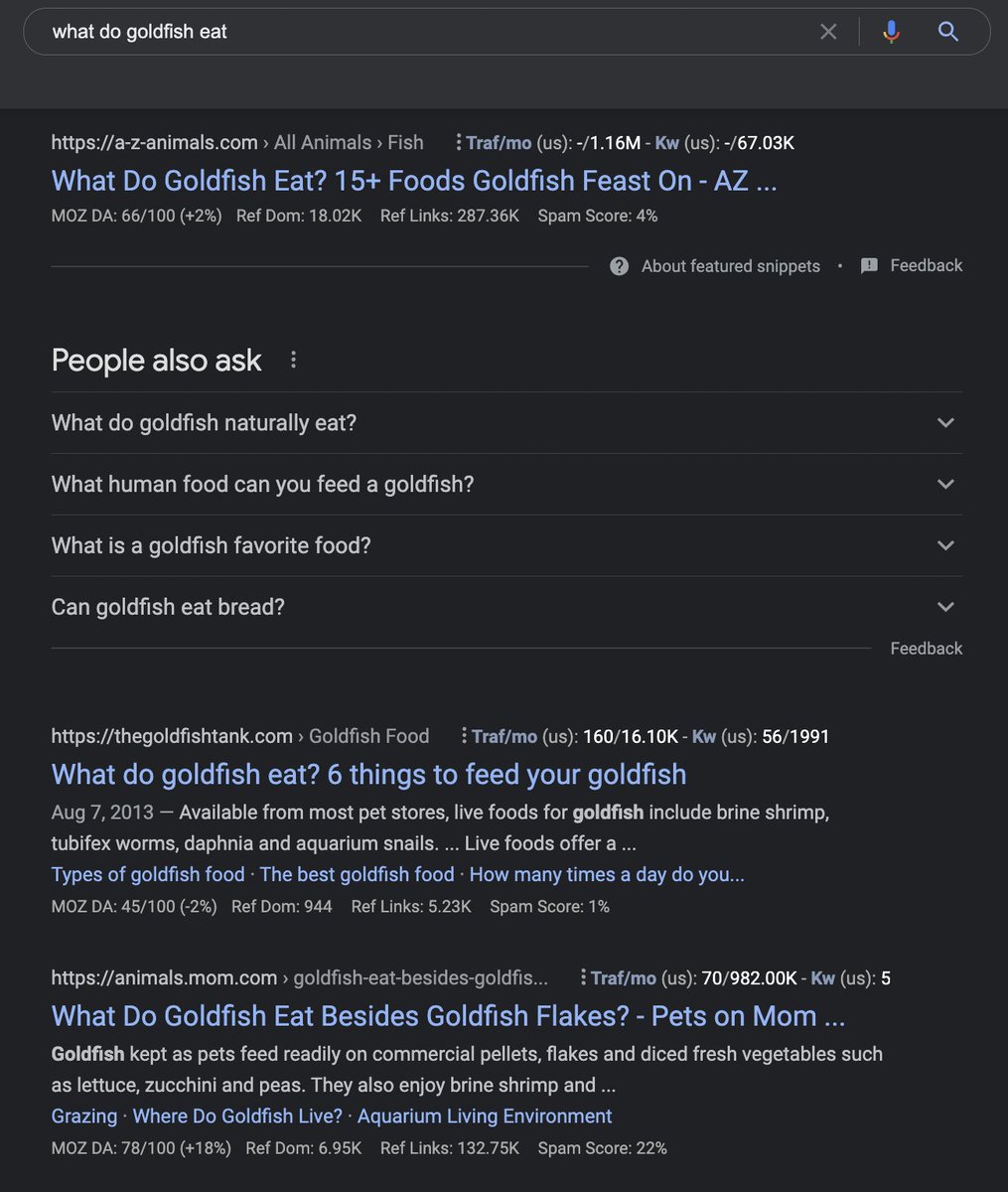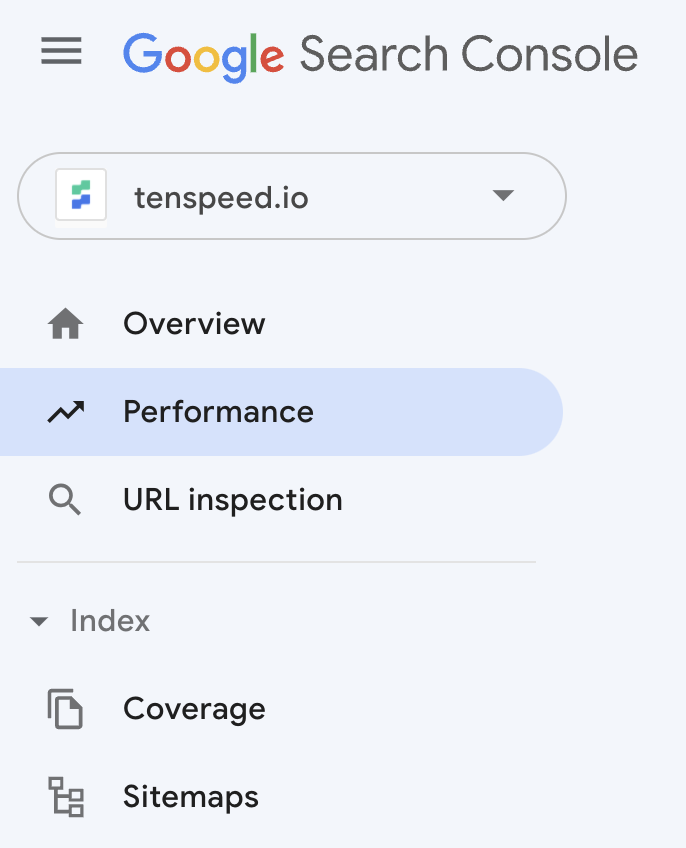#SEO tip for finding content topics for your topic cluster if you ever hit a creative block [Thread 🧵]
How to effectively visualize the internal links of your competitors to understand how they're establishing relationships between topics, themes, and entities. (w/ 🐸)
How to effectively visualize the internal links of your competitors to understand how they're establishing relationships between topics, themes, and entities. (w/ 🐸)
1️⃣ Grab a keyword target that you're interested in ranking for and throw that into Google's search bar.
Example: "what do goldfish eat"
Make a list of the top domains that are ranking for that keyword:
a-z-animals.com
thegoldfishtank.com
animals.mom.com
Example: "what do goldfish eat"
Make a list of the top domains that are ranking for that keyword:
a-z-animals.com
thegoldfishtank.com
animals.mom.com

2️⃣ Take those domains and plug them into @screamingfrog's tool and let it crawl!
Once the crawl is finished - search for the URL of the blog that was ranking for your keyword target.

Once the crawl is finished - search for the URL of the blog that was ranking for your keyword target.


4️⃣ Now click on "inlinks" and "outlinks" tabs at the bottom-left of the tool.
This is going to show you which content your competitors have linked together to build a clustered, authoritative website structure around this topic.
This is going to show you which content your competitors have linked together to build a clustered, authoritative website structure around this topic.

5️⃣ If you want to visualize it, then head up to the navigation at the top of your screen - select the option under:
Visualizations > Force-Directed Crawl Diagram
Visualizations > Force-Directed Crawl Diagram

Now you should be able to see what they've clustered/pillared around topics your brand might also be interested in.
***Note that for the best, most relevant results, you'll likely want to select a competitor that matches most closely to your business/industry/services.
***Note that for the best, most relevant results, you'll likely want to select a competitor that matches most closely to your business/industry/services.

Additionally, when you look at the "inlinks" tab, note the # of topics they have clustered to the post.
This number of inlinks, averaged out across competitors that rank for the keyword target can give you insights into how many pieces of content you might want in your cluster.
This number of inlinks, averaged out across competitors that rank for the keyword target can give you insights into how many pieces of content you might want in your cluster.
There are no hard and fast rules, and I don't recommend copying your competitor's cluster topics exactly.
But this often helps you evaluate if you have any topic gaps and to understand how to think about solving your customer's problems if you're ever in a creative rut.
But this often helps you evaluate if you have any topic gaps and to understand how to think about solving your customer's problems if you're ever in a creative rut.
For more #SEO and #contentmarketing tips, feel free to follow me @I___DEREKflint
Hope you found this thread helpful on your Friday!
Hope you found this thread helpful on your Friday!
• • •
Missing some Tweet in this thread? You can try to
force a refresh








